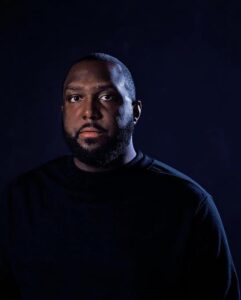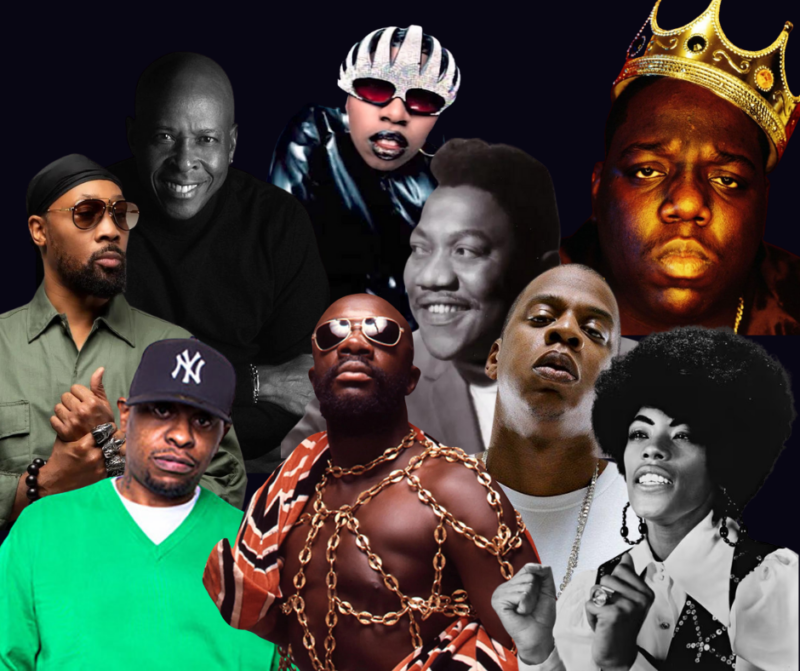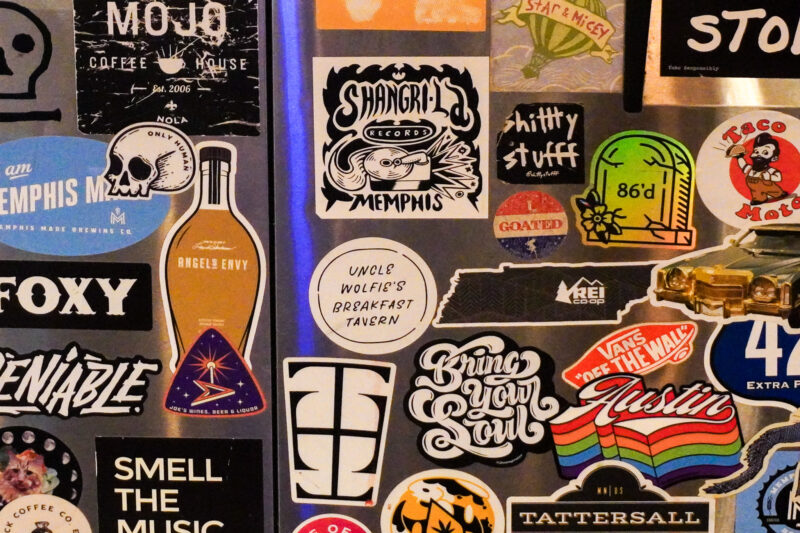1. Tell us about your background. How did you get into the music industry?
I was born and raised in Memphis and a graduate of White Station High School. Music has been a big part of my life since I was a kid. One of my formative memories is the day my parents decided I could be left alone with the stereo. They taught me if I wanted to hear my Barnie and Lion King tapes, I’d have to learn to use the cassette player. And they taught me if I wanted to hear Michael Jackson, I’d need to use the turntable. Every so often, even as the years went on and records became uncommon, I’d find myself flipping through their record collection to hear the sound of vinyl, to look at covers, to touch wax. Every Christmas, I was excited to get CDs in my stockings. And you couldn’t keep me out of a music store when I was young, always looking for new releases. I was always walking around with a Walkman and a zip-up case of discs.
By the time I was a pre-teen, I was rapping regularly, recording tracks in my bedroom. I thought I was D. Jay from “Hustle & Flow,” except I was really heavy into artists like Aceyalone, Murs, Mos Def, RJD2, MF Doom, People Under The Stairs, Common, Jean Grae, Nas, and Jay-Z. I also played drums in the school band. The deeper I got into hip-hop, the more obsessed I became with understanding the songs that my favorite rappers sampled. Naturally, it wasn’t long before I realized that Memphis artists like Al Green and Isaac Hayes were prominent inspirations for my favorite joints. But, that realization hit even closer to home, when I realized my elder cousin Andrew Love played saxophone on a lot of that music, as well.
When I went off to college, I studied broadcast journalism, even though I knew I wanted to be a music writer. I just felt I would be an even better asset to a potential employer if I could host, shoot, and edit video content for the web and social. I started a career in news journalism that took me from the University of Mississippi back home to the Commercial Appeal to Mobile, Alabama, and eventually back home to The Daily Memphian. When I moved back home in 2018, I also accepted a role co-hosting and writing Beale St. Caravan, a radio program globally syndicated by NPR. Whenever I could, I would infuse a little Memphis music history into my writing and reporting, which isn’t hard. So many stories in Memphis involve our music scene. I’d also mention pretty rare records in Memphis’ musical past in my articles. That was like a dogwhistle to local DJs and, eventually, one of them approached me to be a part of the staff at Central Station Hotel’s Eight & Sand lounge.
After about a year at The Daily Memphian, I pivoted, with their support, to co-found WYXR 91.7 FM, a nonprofit, non-commercial radio station run largely by volunteers.
2. You are a co-founder, program manager and one of the on-air hosts for WYXR. How important is a local station like WYXR to the Memphis musical ecosystem?
I understand very well the business model that entices listeners of commercial radio to tune in every day. That consistency and polish is impressive and important to those who like to consume music that way. And, with my oddball tastes, I certainly relate to people who don’t even consider listening to radio, because they like to be in control of the music they hear. Whenever they are getting dressed or riding around in their vehicles, they are playing the music they sourced on their own, by word-of-mouth or on the internet.
But WYXR exists somewhere in the middle, where people who really love music and really love Memphis are able to share the things they’ve learned and heard. It’s a conversation that happens every day, allowing real people, across various walks of life to have genuine interaction through independent media. We have everything from students to retirees, representing all styles of music, and numerous backgrounds. Even if they haven’t met, they are working together to make our sound diverse. And that’s a rare experience.
We strive to have something for everyone, which ultimately means we run the risk of turning some people off because we have too much variety. It’s a balance. We’re figuring it all out!
3. You host a ton of different events here in the city but one of your coolest jobs is helping host the WYXR Stereo Sessions. How did that idea come about and how do you go about picking the albums to discuss?
To be honest with you, I don’t quite remember the conversation that led us to conceive WYXR Stereo Sessions. I know there was an expectation internally that we’d inevitably collaborate creatively with our neighbor Memphis Listening Lab, when they officially opened in Crosstown Concourse. It only made sense, as our missions overlapped in very vital ways.
As a music writer and a record collector, I’d already connected with so many local artists to ask questions about their past releases. So, a big factor in the records I chose to highlight and examine for the first season of the series depended on whether I was confident I could convince someone involved with a given record to come share about it. Of course, the purpose of the series is to expose Memphians to albums that come from our city but aren’t well known. The records have to exist outside of people’s typical notions about “The Memphis Sound,” as well. So no rock n’ roll in the vein of Elvis or Johnny Cash. No straight-up vocal soul like Otis Redding or Al Green. Each record we focus on hits the listener slightly outside of those zones. And it has to be something you would feel is worth sitting and listening to in a setting like you might watch a movie, in comfy chairs, with friends and strangers, alike. They also had to be records I have copies of, or else we wouldn’t have any physical media to listen to at the event. All those factors matter.
So, in two seasons, we’ve heard Memphis albums and stories that encompass jazz, funk, folk, blues infused with pop, prog rock, northern-styled sweet soul, garage rock, and more. I think there’s a lot of music left on the table. But I also think it’s time for me to step back a bit, because there are tons of people at WYXR who are equipped to guide the public through these discussions, leveraging their tastes and relationships. Now that we have proof of concept, I am excited to see it grow beyond the rarities in my collection. There’s a lot out there, and Memphians are in the mix of all of it.

4. It feels like Memphis rap is undergoing some sort of resurgence or revitalization with the mainstream success of artists like GloRilla, Moneybagg, Hitkidd etc. As someone who’s been involved in the Memphis music scene for a long time, what do you make of this?
Memphians have been in vital roles in hip-hop for a very long time. Hip Hop is celebrating 50 years. We weren’t present on Day 1. But it didn’t take us as long to get hip as some folks might think. Not only were Memphis artists cooking up at home in the late ‘80s and early ‘90s, but we exported some key players to work behind-the-scenes in other city’s scenes. Their impact is much harder to measure, and a lot of their names are rarely heard. But I count those contributions to the industry.
Only a handful of cities have mattered to hip hop, as a whole. So, I’m willing to puff my chest out about Memphis. We know New York started this. We know the areas in and around Los Angeles shifted the culture drastically in the ‘90s. And we know Atlanta has been the focal point, manufacturing a gravitational pull that has kept The South on top for multiple decades. I’m confident that it’ll stay that way for a long time.
That’s left a bit of a pecking order for the mid-tier cities in hip-hop, for which Memphis has done a hell of a lot of pecking. Complex published recently that we are in the Top 5 cities of influence in hip-hop. Am I proud? Sure.
Am I able to speak eloquently about the future of Memphis rap or even the current state of Memphis rap? Nah. I’m a record guy. Funk, soul, disco, house, etc.
I feel a nagging responsibility to consider, as beautiful as our musical heritage has been, to challenge young people from our community to use hip-hop as a tool to develop theory, language, philosophy, and discuss social issues. But the odds of even making even a modest living behind a microphone or beat machine requires such a spectacular set of circumstances to be in a person’s favor. Streaming payouts are so low, I’m surprised musicians aren’t striking along with the actors and writers. And with the amount of occupational hazards associated with success in the rap game that have fast-tracked a lot of deterioration and loss, I just don’t see too many positive outcomes.
Even in the music industry, there are tons of lucrative careers, with longevity and job security, outside of being a performer, I believe we could be better equipping our young people to pursue.
So, I just want to see our folk win. Memphis is on the map in hip-hop. That’s cool. Now, what can we do to energize our inner-city to strive for careers in tech, in medicine, in real estate, in global commerce? That’s the beat I wanna bounce to right now.
5. You get the chance to interview and speak to a lot of Memphis music royalty (and overall just cool fucking people) in your work. What’s something that someone told you that sticks with you?
My friend Marcella Simien plays in a trio called Gumbo, Grits, & Gravy, alongside Anne Harris and Guy Davis. Guy happens to be the son of Black artistic royalty, our original African-American power couple, Ruby Dee and Ossie Davis. They were actors on stage and in film, poets, playwrights, musicians, screenwriters, and more.
When I interviewed Marcella and the crew for Beale St. Caravan, prior to a gig here in Memphis, Guy shared with me that his parents were very serious with him when he decided to take up music. He mentioned in our interview that his parents would tell him every day that you perform to the best of your ability, whether there’s one person in the crowd, 500 people, or 500,000. Whether you’re ill or well. Whether you’re happy or sad. Whether you’re rich or poor. The point of it is that the people came to see you share your gift and you honor their investment in that with an investment in yourself and commitment to your craft.
I might’ve put a lil’ extra stank on it. But, coming from Ruby and Ossie, through Guy, the message stuck with me. That responsibility sticks with me.
*Bonus* You’re stranded on a desert island and the only way to survive is by creating the most fire 5 song playlist. What songs are on your list?
– “Nobody” by Playa Fly ft. Gangsta Blac
– “Groove Me” by King Floyd
– “Love & Happiness” by Al Green
– “And The Beat Goes On” by The Whispers
– “Automatic” by The Pointer Sisters







